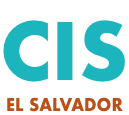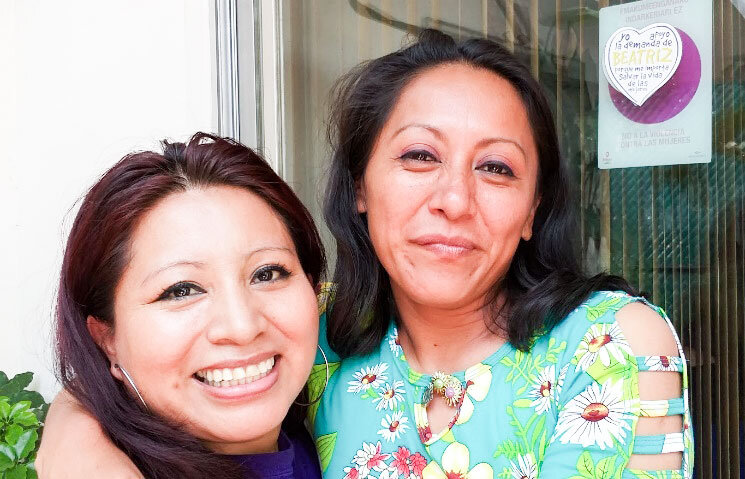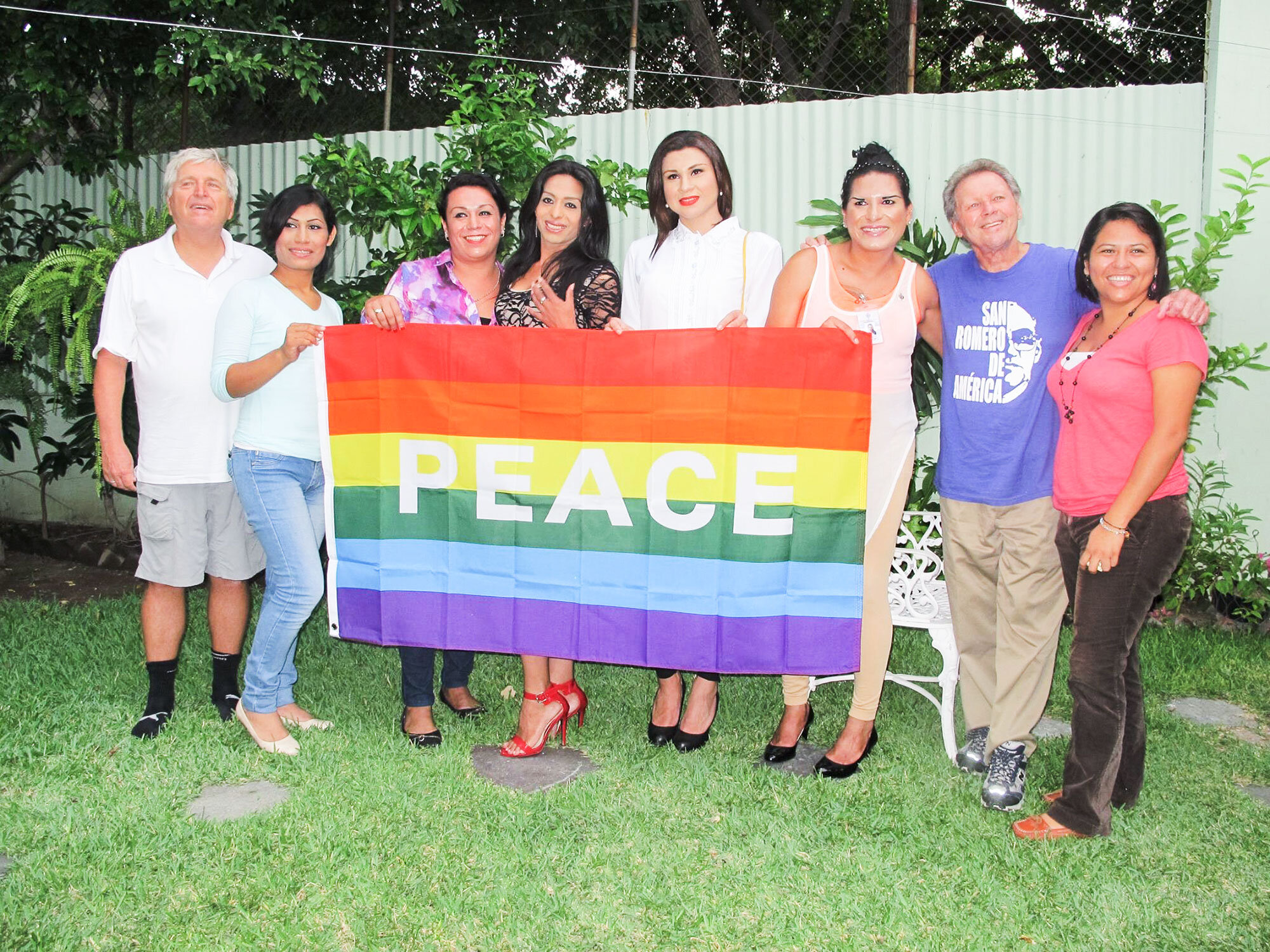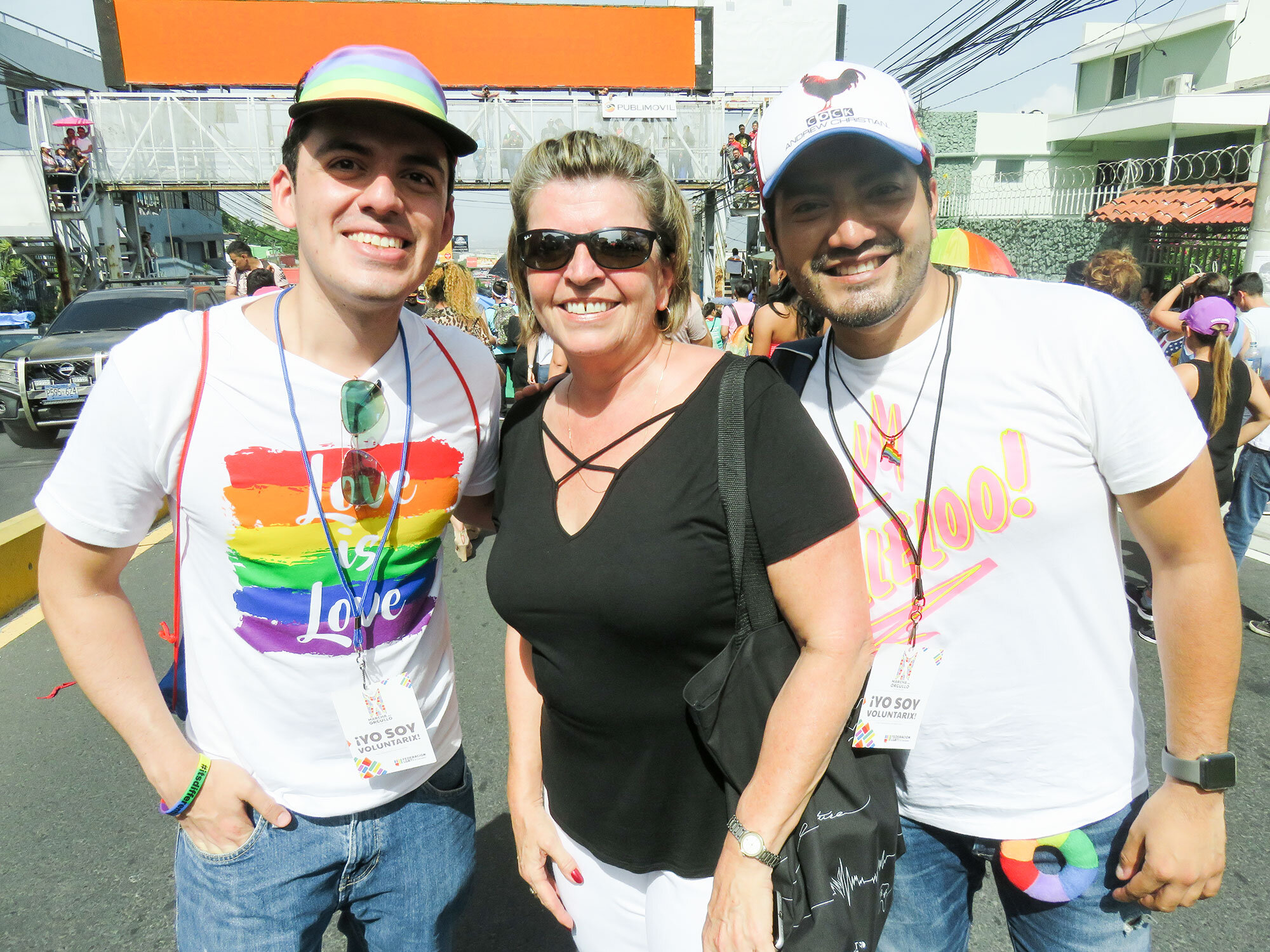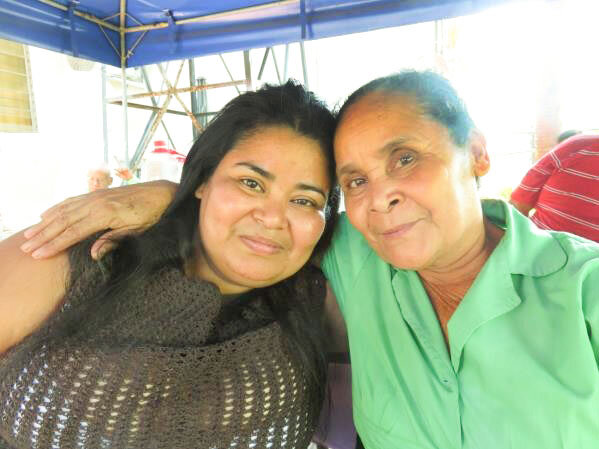
Since the end of the civil war in El Salvador, the CIS has supported efforts to protect human rights. Our programs have evolved and expanded to meet the needs that have arisen in the society.
In recent years, our work for human rights has included support for two specific groups: women unjustly imprisoned and transgender women. Under existing Salvadoran laws and procedures in the justice system, protection of their human rights is extremely limited.
Through our Gender Scholarship Fund we provide funding to help people of these two groups or their children access new training and education.
In 2020, the CIS sponsored eleven students in this program: seven at the university level, three in high school, and one in junior high school.
Women Unjustly Imprisoned
In El Salvador, the justice system system is so weak that people are imprisoned without evidence, due process, and legal representation, and often for crimes they did not commit. They are held in jail for months while they await arraignment. And they are often condemned to serve lengthy sentences that are disproportionate to the acts committed.
Women face the risk of serving years in prison if they accused of abortion -- illegal in El Salvador since 1998 in all cases, including when a woman’s life is in danger, the fetus is inviable and will not live, or the pregnancy is the result of rape or incest.
Obstetric emergencies, miscarriages, and stillbirths have led to false accusations of abortion, which carries a prison sentence of seven years (since the law was changed in 1998) and the risk of prosecution for murder, which carries a penalty of 30-40 years. Obstetric emergencies classified as abortion criminalize women.
Health providers and police are required to report any women they suspect of having attempted an abortion. At this point in time, women live behind bars with sentences ranging from 15 to 40 years for miscarriages, stillbirths, and obstetric emergencies – all classified as abortions. In one example, a woman who had a baby born in a latrine and called 911 for assistance was prosecuted and received a 15-year sentence for attempted abortion – even though the baby survived. It also seems that the only women who are imprisoned are poor.
Women endure horrific conditions to survive inside a prison. Basic needs like soap, toothpaste, sanitary supplies, and toilet paper are not provided and their families often cannot afford such extra costs. Almost all of these women have children they must leave in the care of relatives.

The CIS offers support to women in prison and when they get out.
With the help of lawyers and human rights organizations in El Salvador, several women have been released. However, they have no resources to begin life again once they have been released.
The CIS Supports women unjustly imprisoned in the following manner:
Delegation visits with women in prison are invaluable for the women to build self-esteem and relationships of trust, as they work toward the day they are released from prison.
Advocacy: CIS delegation members visit Salvadoran officials about their cases. We also write letters advocating for the women to both Salvadoran and international authorities.
Care packages: When we can get permission, we provide women in prison with basic health and hygiene supplies. We also provide notebooks and pens so they can take advantage of courses offered in prison.
Scholarships: With direct support from donors, the CIS provides education scholarships for the children of imprisoned women and for women when they are released. The women are often stigmatized when they get out of prison and have difficulty getting formal work. Education is an essential support for their children and a powerful tool for them to rebuild their self-esteem and re-integrate into society.
Teodora Vasquez was reunited with her 15-year-old son after 10 years and 7 months.
“I was accused of abortion and, later, homicide of my daughter, who did not survive childbirth. The state denied me a defense lawyer to prove my innocence. Because of the criminalization of poor women, I was sentenced to 30 years in prison. I served 10 years and 7 months because people who believed in my innocence were able to get my case reviewed.
While in prison, I completed schooling from third grade through high school. I want to study human rights and defend women whose rights have been denied. I am taking computer courses so that I can have the tools to enter law school. I invite you to continue supporting the CIS gender scholarship fund, which is so important to overcome stigmatization and defend human rights.”
Transgender Women
Transgender women in El Salvador are marginalized and face direct violence, including the threat of murder. The dominant culture in El Salvador has historically lacked tolerance for and understanding of nontraditional gender identities. Their protection under the law and justice system is very weak.
We partner with Rainbow Trans Solidarity Association for Human Development (ASPIDH), which works for the rights of transgender women to live and work in peace with the full rights of citizens. We provide scholarships to ASPIDH members so that they can finish their education and access dignified employment. Often transgender women are forced into prostitution as the only work open to them. Many were forced to leave school because of bullying and have not yet completed high school. Some were kicked out of their family homes before completing school and have had to live on the streets. A scholarship offers a path back to a dignified and productive life.
We rely on your continued donations to keep this vital program growing.

Current Scholarship Recipients
(some are not listed for security reasons)
HIGH SCHOOL SCHOLARSHIP RECIPIENTS
Briseyda Damaris Martínez Ramírez
Age when released: 17
Currently in her senior year of high school, Briseyda lives with her 51-year-old mother, Myrna Isabel Ramírez, who studied through 8th grade. Myrna was one of more than seventeen women unjustly imprisoned between 2008 and 2009. She was released on March 18, 2018. Now Myrna works more than fifty hours per week as a cook at a small restaurant for a salary of $120 per month. They live in a suburb of San Salvador with a strong gang presence.
Tomás Alejandro Castro
Age: 18
Tomás is in his final year of high school. His mother, Manuela, died of cancer while serving a 30-year prison sentence in 2010. She died two years after being convicted of aggravated homicide for suffering an obstetric emergency during her pregnancy. The loss of her child was due to her cancer and not to any provocation on her part. Tomas lives with his grandparents and older brother, who work and live from agriculture. She was denied medical treatment for her cancer while in prison.
Jazmine del Carmen Orellana
Age: 16
A first-year high school student, Jazmine lives with her grandparents, who are her primary caregivers. Jazmine’s mother, Maria del Transito, suffered a stillbirth and was convicted to 30-year sentence for aggravated homicide. She was released from prison and works as a maid. Jazmine’s grandmother is the primary homemaker and her grandfather works in agriculture.
UNIVERSITY SCHOLARSHIP RECIPIENTS
Joshi Leban
A student of public relations at the Technological University of El Salvador, Joshi is a feminist activist. Joshi had to leave her home, as her family rejected her because of her sexual orientation.
“For almost eight years I couldn’t return to my studies for economic reasons. The opportunity that CIS has provided me allows me to complete my dreams and put my experience and knowledge in service to the community and the social struggle.”
Adriana Yamileth
Yamileth is studying Psychology at the Technological University of El Salvador. Yamileth plans to begin a research project in 2021 to complete her degree. She is a transgender woman who has worked with ASPIDH.
“I am an adult trans woman who works constantly to achieve each of my dreams and goals. When I was younger, I was forced to give up my studies because of bullying and discrimination. Although many things have changed, I still face the transphobia of society. I study psychology because I think it is very important to have professionals with greater empathy for the different problems that afflict us. In some way, I want to contribute to empowering people and try to diminish the effects of discrimination.”
Susana Alvarez
Susana is studying English at the Modular Abierta University of El Salvador. Susana was raped by her brother-in-law, an evangelical pastor, and got pregnant. Due to her extreme poverty, she could not access adequate medical care and suffered an obstetric emergency. She was accused of inducing an abortion. Through the support of a competent lawyer she was acquitted. Upon release, she had to finish high school through a special remote learning program because of the stigma and discrimination she suffered in the classroom, despite being acquitted of wrongdoing.
Saúl Vásquez
An English student at the University of El Salvador, Saul will graduate this year. Saul works at ASPIDH, the CIS’s partner organization that advocates for LGBT rights.

The CIS Gender Scholarship Fund supports:
University student scholarships at $85 per month / $1,020 a year per person. University programs take 6 years to complete in El Salvador)
High School student scholarships at $25 per month / $300 a year per person. High School is three years in El Salvador.
A hygiene kit for one imprisoned woman for $25. (There are currently 17 women still in prison on similar charges).
Reintegration package for a woman being released from prison for $100. It includes clothing, basic hygiene, knapsack, laundry soap, and a cell phone.
How can you donate to this fund?
Visit our Donate Page and select Gender Scholarships Fund from the drop-down menu.
You can opt to make your donation monthly or annually, or as a one-time donation.
These donations are tax deductible in the U.S.
